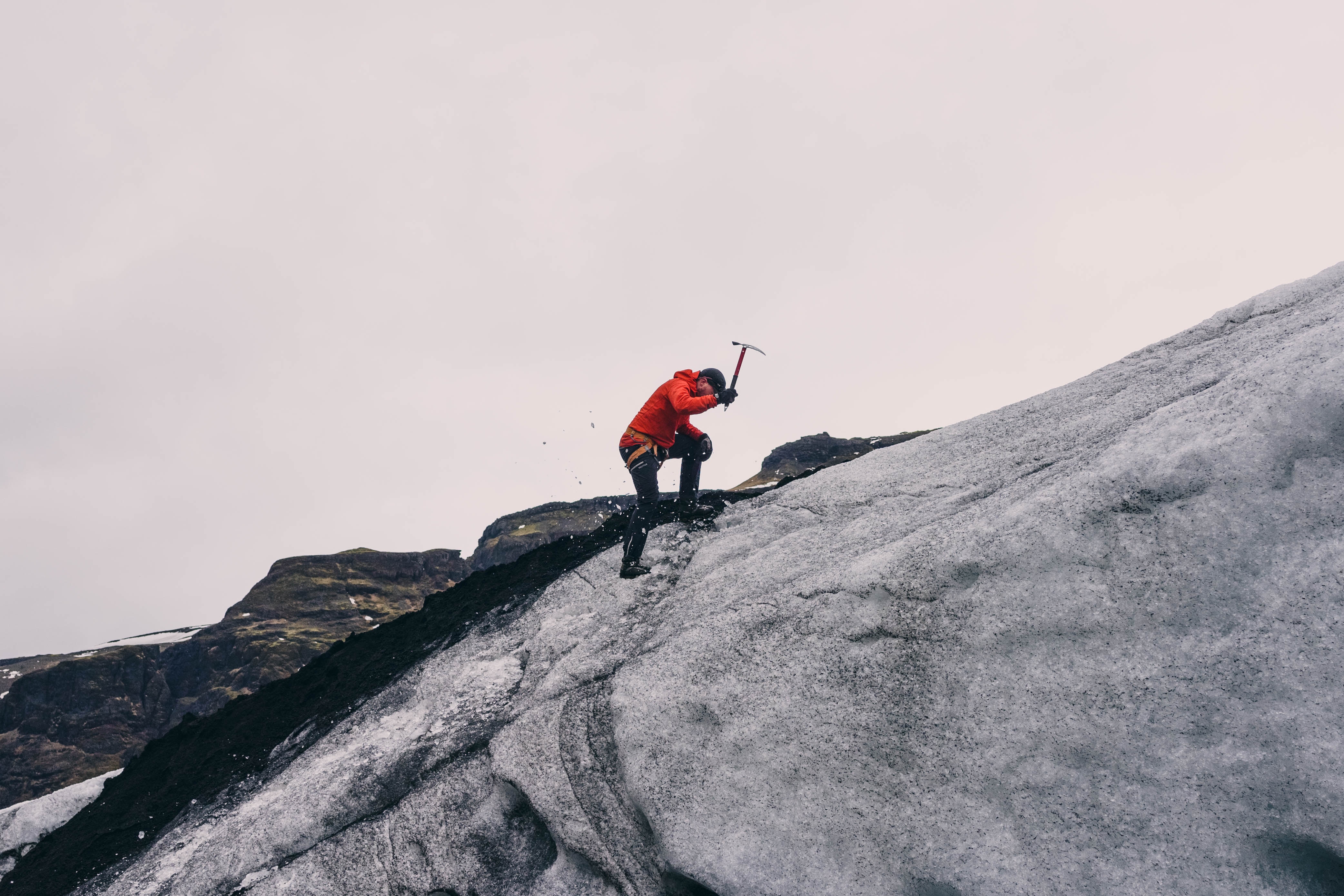From the time we’re little, we’re told that not everything will go our way. And it’s true: from big life disappointments to small daily setbacks, we’re constantly bumping up against challenges. At work, a million things can, and do, go wrong: the deal falls through, your boss declines to take your advice, a colleague takes credit for your idea. And precisely when we don’t expect it, life throws us curveballs that can truly unsettle us, from losing a job to losing a friend or family member.
And while it’s true that so much lies beyond our control, it’s also true that a lot is in our control — probably more than we realize. Again and again we see that the human body, mind and spirit are capable of overcoming the inevitable challenges, setbacks and disappointments we all face.
Much of it comes down to perseverance and grit. Research not only shows the importance of these qualities, but that we can train ourselves to get better at them. And while they certainly help us succeed in conventional ways, they’re also central to our ability to live more sustainable and fulfilling lives. As we encounter obstacles, what matters is that we find a way to bounce back, learn from our experiences, and keep going.
Subhed: Welcome to the Thrive Guide to Perseverance and Grit
Thrive Global is a behavior change platform focused on lowering stress and increasing well-being and productivity. The company, founded by Arianna Huffington, creates lasting change in people’s lives by giving them sustainable, science-backed solutions to enhance their performance and overall well-being.
This Thrive Guide will show you exactly how to increase your capacity for perseverance and grit — and explain the science behind how you can make yourself more resilient through determination and practice.
Perseverance and grit have long been celebrated, but our definition has been too narrow. Too often, we equate these qualities with toughness or machismo. But there’s a lot more to it. A certain, old-fashioned approach — what we might call powering through — might work in the short-term, but before long it can lead to stress and burnout that will leave you feeling depleted and not necessarily stronger or wiser. True perseverance and grit are not just about getting through something — what really matters is how you emerge on the other side. Our Thrive Global Microsteps — simple, science-backed changes you can start incorporating into your life today — will help you understand this sustainable approach to perseverance and grit and show you ways to make them part of your life, starting now.
We’ll introduce you to the New Role Models who prove that anyone, no matter what they’ve been through or are up against, can commit to meeting challenges with more resilience. For example, Olympic gold medalist Nastia Liukin told Thrive that falling in front of 20,000 people and then getting up again to finish her routine was the “defining moment” of her career. Model Yomi Abiola told Thrive about the steps she took to overcome an unexpected failure. And Social Leverage general partner Gary Benitt told Thrive that he sees each failure as “an opportunity for improvement.”
In our Tech to Thrive section, we’ve curated the best technology that can help you get into a mindset of overcoming obstacles.
Given the performance-enhancing benefits of perseverance and grit, our Managerial Take-aways section offers advice for managers who want to encourage others to tap into these qualities. When your direct reports know you value and support their ability to be resilient, they’ll be even more eager to take on bigger challenges and pour their talents and passion into their work.
By the end of this guide, you’ll have the tools and practical advice you need to live and work with more perseverance and grit, with all the benefits it brings.
Subhed: The Science Behind Your Ability To Persevere
A certain amount of resilience is required to get through pretty much anything — a typical day, a slow commute, an unnecessary meeting, a dull PowerPoint presentation. As a result, we’re pretty good at navigating whatever comes our way, and we get plenty of practice. Think about it: when was the last time you had a day without a setback, challenge or frustration?
But sometimes life really knock us off our footing. And we can be left questioning our abilities, our worth, and our larger purpose.
These are universal experiences. And that’s perhaps why so much recent research has focused on perseverance and grit. We now know not only that these qualities are important, but that they’re powerful performance enhancers, helping us to thrive in the face of our biggest challenges — as opposed to just getting by. When we master them, we’re able to emerge from nearly any situation stronger, wiser, and ready to take on even bigger challenges.
Judith Rodin, former president of the Rockefeller Foundation and author of The Resilience Dividend: Being Strong in a World Where Things Go Wrong, is a leader in showing just how resilient people, communities and organizations can be in the face of crisis. Rodin’s definition of resilience is “the capacity to bounce back from a crisis, learn from it, and achieve revitalization.”
And we have no shortage of examples of people doing exactly that. We’ve all heard stories — and read books and seen movies — about ordinary people doing extraordinary things and summoning something deep inside themselves to overcome the odds. Often these take the form of survival stories or inspiring sports narratives — like Natalie du Toit, the young South African swimmer who had her left leg amputated after being struck by a car on her way to school. She then went on to compete not only in the Paralympic Games but in the Olympic Games in Beijing, where she was the first-ever female amputee to compete in the Olympics.
Then there are the stories of those whose live through natural disasters. For example, after Hurricane Maria devastated Puerto Rico in 2017, countless stories emerged about people persevering while waiting for aid to arrive. When a bridge was destroyed, for example, residents of a remote mountain village built a makeshift pulley to transport food and supplies across the water in a shopping cart to those in need.
But you don’t have to experience a disaster or tragedy of such magnitude to become resilient. As one study concluded, “resilience is common” — that is, anyone can learn to overcome adversity. That’s one reason Angela Duckworth, a psychologist and the author of Grit: The Power of Passion and Perseverance, distinguishes grit from talent. She writes that grit is about having “a goal you care about so much that it organizes and gives meaning to almost everything you do. And grit is holding steadfast to that goal. Even when you fall down. Even when you screw up. Even when progress toward that goal is halting or slow.”
When Sheryl Sandberg’s husband, Dave Goldberg, died unexpectedly in 2015, her first concern was helping her two children persevere through the tragedy. That led her to a wealth of research on how even young children can develop qualities to help them overcome life’s biggest challenges.
“The good news is that resilience isn’t a fixed personality trait; we’re not born with a set amount of it,” Sandberg wrote. “Resilience is a muscle we can help kids build.”
And we can get better at it over time, according to Adam Grant, a professor at the Wharton School of the University of Pennsylvania and Sandberg’s co-author on Option B: Facing Adversity, Building Resilience, and Finding Joy. “There is a naturally learnable set of behaviors that contribute to resilience,” including more control over our emotions, the accumulation of life experience and perspective, and more concern for others, Grant told The New York Times. “Those are the behaviors that we gravitate to more and more as we age.”
And certain behaviors and attitudes can make us more resilient. Purpose, gratitude and altruism predicted resilience among military veterans, according to a 2017 study published in the Journal of Psychiatric Research. As Dr. Steven Southwick, a psychiatry professor at Yale Medical School, told The New York Times, “Any way you can reach out and help other people is a way of moving outside of yourself, and this is an important way to enhance your own strength.”
Now, let’s put these insights into action.
Subhed: Small, Actionable Steps You Can Take Today
Here are some small, actionable steps you can take to become more resilient, starting now.
1. Say “thank you” to a colleague, friend or family member today.
Higher levels of gratitude make you stronger and more resilient. When you make a habit of expressing gratitude, it’s like storing up resilience in advance of difficult times ahead.
2. Set aside five minutes of recovery time after an important meeting.
Instead of returning immediately to your work, take a short walk or just a few minutes of conscious breathing. Consciously building in just a few minutes helps you to collect your thoughts, recharge, and bounce back from any challenges.
3. When you’re stressed or struggling, think of a specific time in your past when you overcame an obstacle.
Take deep breaths and recall a time when you persevered. Remember that you’ve made it through difficult situations before, and when you do, you’ll feel more resilient so you can persevere through whatever you’re facing now.


